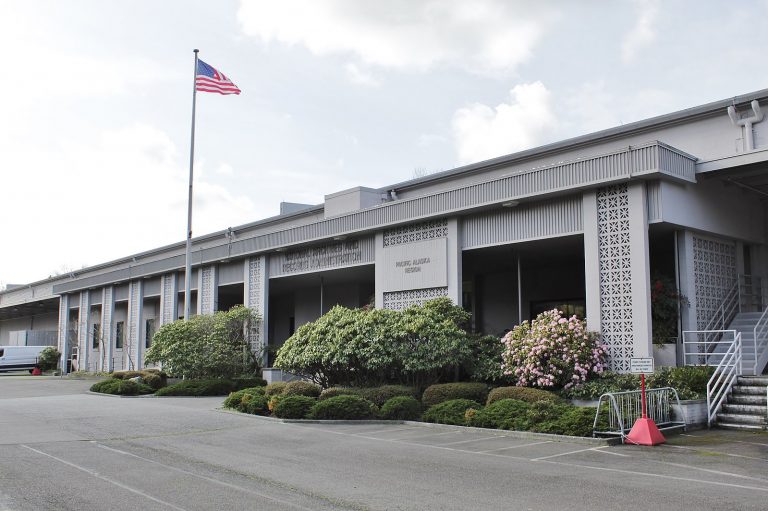Published on January 27, 2021

Concerned it would threaten their cultural preservation, history and treaty rights, 40 tribes in Washington, Oregon, Idaho and Alaska joined a Jan. 4 lawsuit with Washington Attorney General Bob Ferguson to stop the federal government from selling the National Archives facility in Seattle and shipping its millions of boxes of records to California and Missouri.
The state of Oregon and nine historic preservation groups and museums also joined Ferguson’s lawsuit. The coalition filed a motion for a preliminary injunction on Jan. 8 in U.S. District Court to try to immediately stop the sale, alleging that the federal government violated conditions in place regarding such sales and neglected the importance of the records for the Northwest.
Located in Sand Point Way, the National Archives at Seattle contains records made by federal courts and agencies in Washington, Oregon, Idaho and Alaska.
Numerous tribal leaders, historians and researchers from all four states submitted declarations in support of the January 4 motion. Tribal members wrote about using the records at Sand Point to learn family history, create tribal museums, revive their languages, discover traditional reservation burial spaces to locate a cemetery and for legal issues regarding treaty rights, natural resources and tribal enrollment.
The archives contain a huge number of tribal treaty records and others maintained by the Bureau of Indian Affairs that “go back to pretty much the beginning of federal presence here in this area,” said Alexandra Harmon, professor emerita of American Indian Studies and History at the University of Washington, who used them to research her history books on Native peoples in the Northwest.
They are primary sources detailing the ways federal officials and tribes negotiated treaties and land claims, records of tribal council meetings, of schools and other programs the BIA oversaw. They can tell us how Native people viewed events and what they were trying to do throughout history, Harmon said. “In many cases these are the only records that Indian people, that tribes have, of what has happened.”
In the Seattle area, the Duwamish Tribe relies on the archives for its 40-year quest for federal recognition and to preserve its history, according to a declaration included in the motion written by Duwamish Tribe Chairwoman Cecile Hansen. “Records currently located in the National Archives, but not yet reviewed by the Tribe, offer critical evidence to finally convince the U.S. government to recognize our existence,” Hansen wrote.
Continue reading at Real Change.
Originally written by Chetanya Robinson for Real Change.